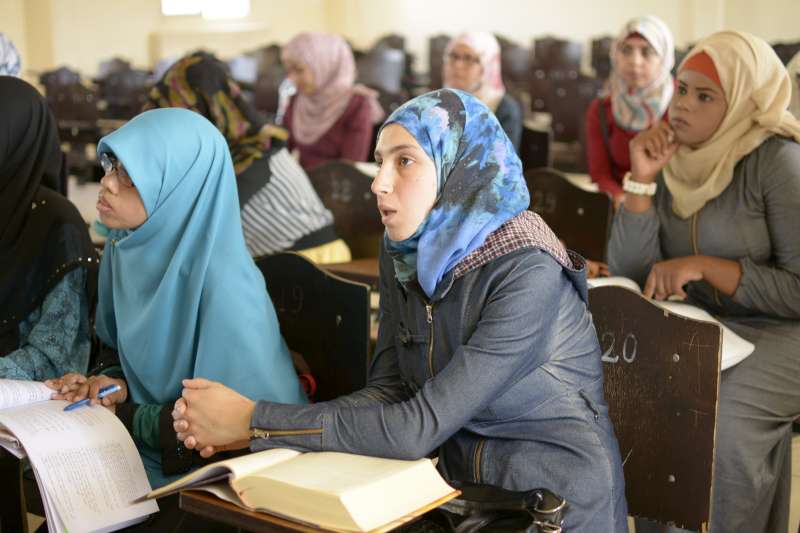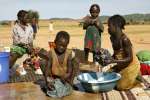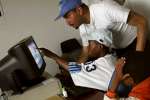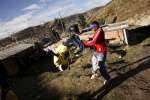Za'atari student wins distinction despite trials of camp life
News Stories, 28 July 2015
ZAATARI REFUGEE CAMP, Jordan, July 28 (UNHCR) – Three years after the opening of Za'atari refugee camp, months of late night studying by the light of a lantern have paid off for one Syrian student after she achieved the highest grade in her faculty at the local Jordanian university she attends.
Alaa, 19, has just completed the first year of her degree in Arabic language and literature at al-Bayt University in Mafraq, a short bus ride from the camp. As well as finishing top of her department in the end of year exams, she also gained the second highest mark in the academic year overall.
Her achievement is even more remarkable given the hurdles she has faced. Alaa and her family moved to the camp in January 2013 after their village in Syria's Dara'a province was destroyed. Their cramped living conditions meant she often had to study outdoors in searing temperatures, suffering heatstroke as a result, or deep into the night with only a solar lantern to light her books.
Alaa's attendance at the university is funded through UNHCR's DAFI scholarship programme, which covers her tuition and registration fees, transport costs, books and other materials. She describes hearing that she had won the scholarship as the happiest moment of her life.
"I feel successful knowing that my efforts have not been for nothing," she tells visitors from UNHCR. "Every day I go to university I'm happy. I get out of the camp and see trees and colours other than just the colour of the desert."
As of June 2015, 59 Syrian students were receiving DAFI scholarships in Jordan. Due to budget shortfalls, the 2015/16 academic year will see the number of new scholarships drop to 10, down from 50 the previous year.
With demand far outstripping the number of available scholarships, many bright young refugees risk missing out on a higher education.
One such student is Alaa's younger sister Sondos. The 17-year-old is currently awaiting her secondary school results and expects to get the grades needed to qualify for university. But due to limited funding only one student per family is eligible for the DAFI programme, meaning she must find an alternative scholarship in order to follow her sister into higher education.
"Alaa is ready to give up her scholarship so that her sister can study, but we've told her that we don't want that," explained UNHCR's Camp Manager for Za'atari Hovig Etyemezian. "She wants to study medicine, and we are committed to finding a scholarship for Sondos, and many deserving students like her."
Their story underlines the changing nature of the challenges facing Za'atari residents and the humanitarian organisations that work there, three years after the camp first sprang up in the northern Jordanian desert to shelter those fleeing from Syria's brutal civil war.
Many of the camp's 81,500 inhabitants have been living there for years, with little immediate prospect of returning safely to their homeland. With long-standing infrastructure issues such as shelter, electricity and water now largely resolved, attention is increasingly shifting to longer-term challenges including employment, skills training and education.
More than half of Za'atari's residents are children, and a third of them are not currently attending school. Of the 9,500 young people in the camp aged between 19-24, 5.2 percent started university but had to drop out due to the conflict, while just 1.6 percent successfully graduated.
Alaa's evident intellect and fierce determination means she is one of the few set to buck the trend, but with a generation of Syrian refugees at risk of missing out on secondary and higher education, she fears what it will mean for the future of her country.
"Education is the first block in building a strong society, and without it there will be no doctors, teachers or engineers to help rebuild Syria," Alaa said.
"As the crisis drags on an on, I don't know how long the international community can keep providing this huge number of refugees with food and shelter. But if we can at least get an education, we have a chance of being self-sufficient and providing for ourselves in the future."
By Charlie Dunmore in Za'atari refugee camp, Jordan








































